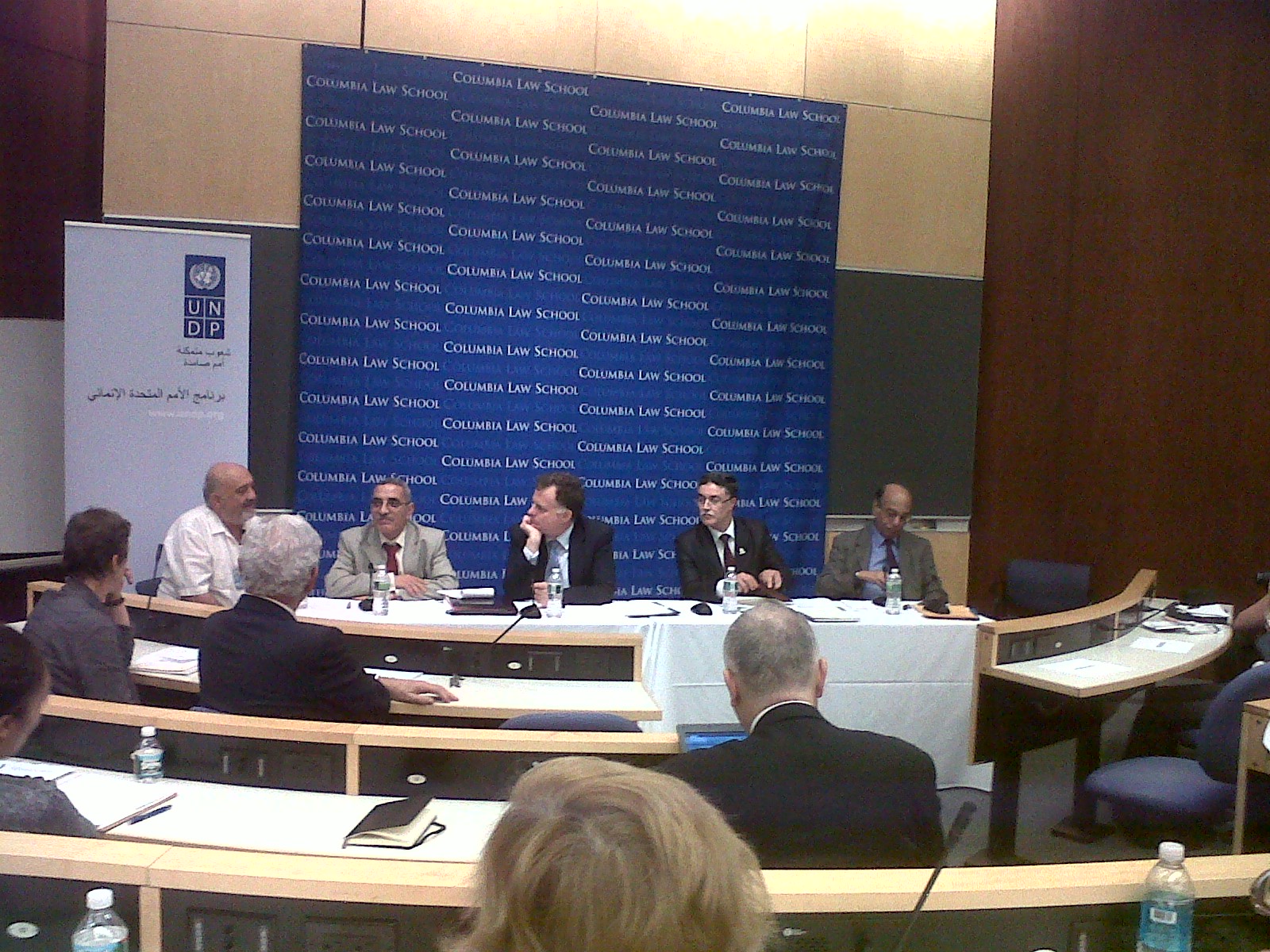Political Minutes: Libyan Chief Justice, Tunisian State Secretary for Reform
 Transitions from a revolution are a tricky thing. The swift uprisings and the crumbling of regimes contrast with the slow brick by brick rebuilding process. After the Arab Spring, Middle Eastern countries that have undergone tumultuous revolutions are now under the scrutiny of the rest of the world. The bumps on the road to democracy are clearly visible. But the many newly minted leaders are trying daily to make things better.
Transitions from a revolution are a tricky thing. The swift uprisings and the crumbling of regimes contrast with the slow brick by brick rebuilding process. After the Arab Spring, Middle Eastern countries that have undergone tumultuous revolutions are now under the scrutiny of the rest of the world. The bumps on the road to democracy are clearly visible. But the many newly minted leaders are trying daily to make things better.
It was reassuring to hear so first hand this afternoon at “The Arab Spring: Rule of Law in Transitional Settings, Libya, Tunisia and beyond,” hosted by the Alliance Program with the Office of United Nations Development Program’s at the Columbia Law School.
Representing prominent elements of both Libya and Tunisia’s transition governments, Kamal Bashir Idhan, Chief Justice of the Supreme Court of Libya, and Said Mechichi, State Secretary for Reform in the Ministry of the Interior of Tunisia, told the audience through translators of the recent histories of their turbulent countries and the efforts being made to uphold the ideas of the revolutions.
“I will speak about things which I find difficult to speak about,” began Idhan. He discussed the challenges of the total loss of infrastructure following Qaddafi’s fall, the big problems of transition, and the lessons Libya learned from Tunisia’s previous revolution. “The revolution in Tunisia…was the best support for us,” he said, adding that “the transition phase in Libya faced certain things that the Tunisian transition didn’t face” in reference to the Libyan revolution’s bloody end.
Moving to the problems facing post-Qaddafi Libya, the Chief Justice noted somberly, “The war left us with psychological problems, and led to divisions among different factions of the people.” After the fall of the regime, “there was no constitution, no regular army,” making any smooth transition all but impossible.
The Tunisian State Secretary also highlighted the numerous problems of transition, saying, “Since the fall of the regime, we have been daily facing protests and demonstrations linked to the changed situation.” Mechichi also noted the immediate need facing the Tunisian newly elected assembly to finalize its constitution, adding that there also “must be a reform of the security sector,” which has not yet begun to embrace the spirit of the revolution.
“There can be no security without development, and there can be no development without security,” he said, focusing heavily on the connection between a strong security system and the protection of Tunisians’ human rights and dignity. In the meantime, just last month security agencies arrested two citizens for blasphemy.
Both officials stressed that full reform will take time, praising the courage of their peoples and the revolutions while noting that the transition is still a work in progress. Despite the worrying nature of the current challenges, the Libyan people’s “insistence on ending this regime and recovering their dignity pushed them to do what they have done,” Mr. Idhan said proudly.

